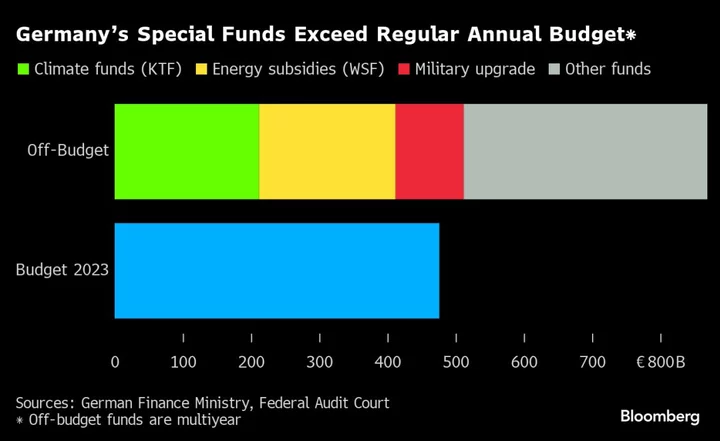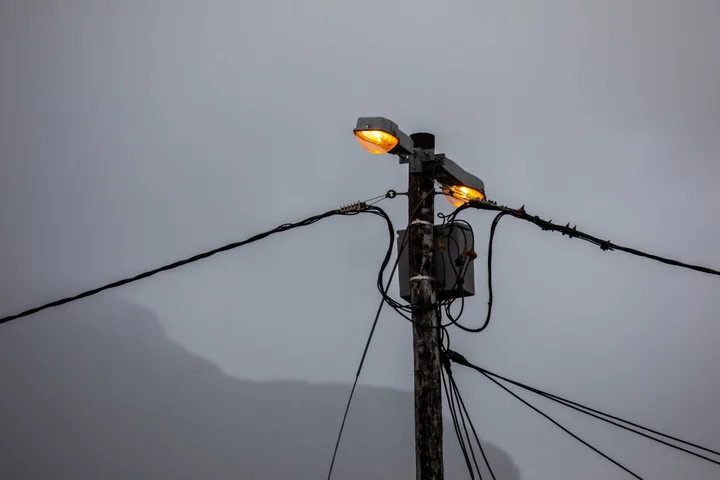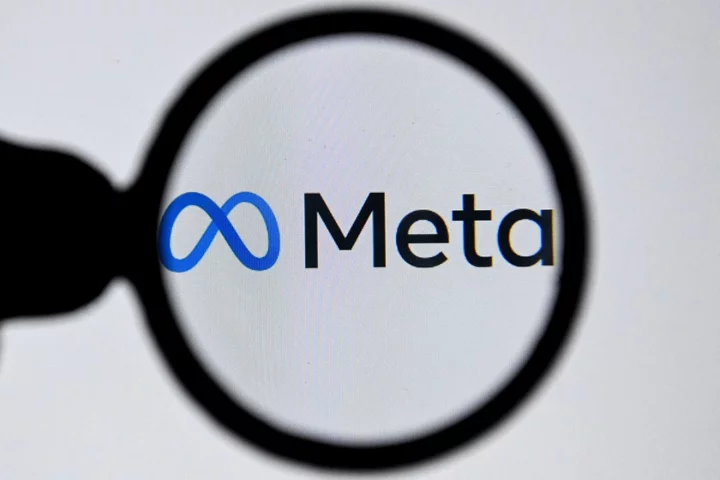
Germany Approves Revised 2023 Budget Suspending Borrowing Limit
German Chancellor Olaf Scholz’s government approved a supplementary 2023 budget that includes the suspension of rules limiting net
2023-11-27 22:59

Storm May Dump a Foot of Snow in Western New York: Weather Watch
A cold air front crossing Lakes Erie and Ontario could drop 12 to 18 inches (30.5 to 45.7
2023-11-27 22:48

L3Harris to sell its commercial aviation solutions business for $800 million
L3Harris Technologies is selling its commercial aviation solutions business to private equity firm TJC L.P. for $800 million,
2023-11-27 21:51

There’s Never Been a Better Time to Buy an Electric Car
The battery-powered BMW iX is a technological marvel. It travels up to 321 miles on a charge, its
2023-11-27 21:47

Google’s latest smartphone has bizarre bumps on the screen
Owners of Google’s latest premium smartphone are experiencing strange bumps and ripples that appear on the device’s screen. Google claims the issue with the Google Pixel 8 Pro has “no functional impact to Pixel 8 performance or durability”, though some users have already returned their new phone in an effort to resolve it. Pixel owners shared their experiences with the issue across social media and on Google forums, expressing their frustration that there appears to be no fix. “I had this on mine as well,” a user called Constanza Juarez wrote. “Not visible on natural light but extremely visible under artificial light, both with screen on and/or off.” Another user wrote: “Even with a glass screen protector, I can see the same bumps when I examine the edges of my Pixel 8 Pro.” Bumps and ripples have been reported on the top and bottom left of the screen, above the SIM card tray, near the fingerprint scanner, as well as the top and bottom right of the display. Some even reported sending their bumpy phones back to Google, only to have the same issue occur with the replacement device. A video showing the Google Pixel 8 Pro being taken apart suggests that the internal mechanics of the smartphone are responsible for the screen bumps, which could complicate any attempts by the phone maker to rectify the issue on this particular model. “Notice how the spring clips in the right side of the Pixel 8 Pro line up exactly with the indents in the foil on the display side of the phone,” one owner noted. “It seems to be pretty clear that these clips are the cause of the bumps we are seeing in our displays.” Google has not revealed the exact internal phone part causing the uneven surface, however did acknowledge that some users may see them on their new smartphones. “Pixel 8 phones have a new display,” a company spokesperson said. “When the screen is turned off, not in use and in specific lighting conditions, some users may see impressions from components in the device that look like small bumps. There is no functional impact to Pixel 8 performance or durability.” Read More Google issues one-week deadline to Gmail account holders Gmail users receive urgent warning before account purge Don’t believe your eyes: how tech is changing photography forever Gmail users receive urgent warning before account purge
2023-11-27 20:54

President Biden Plans to Skip COP28 Climate Summit in Dubai
President Joe Biden isn’t planning to attend the COP28 climate summit later this week in Dubai, according to
2023-11-27 19:56

Australia to amend law to regulate digital payments like Apple, Google Pay
SYDNEY Australia's government said on Monday it would bring Apple Pay, Google Pay and other digital payment services
2023-11-27 19:55

In 2024, Republican EV attacks may fall short as swing states reap investment
By Gram Slattery and Nichola Groom WASHINGTON Electric vehicles are a "hoax," they do not work, and they
2023-11-27 19:19

German Economy Chief Promises Funding for Key Climate Projects
German Economy Minister Robert Habeck pledged that the government will find a swift solution to the turmoil triggered
2023-11-27 18:50

Putin unveils Russia’s new AI strategy to rival Western advances in artificial intelligence
Vladimir Putin has unveiled what he calls Russia’s new strategy to counter Western dominance of the field of artifical intelligence, claiming that new AI models “cancel Russian culture”. The president addressed an AI conference in Moscow on Friday where he said Russian investment in AI development was being increased across all sectors. Citing the example of Gazprom Neft, Mr Putin said one of Russia’s largest oil producers was using AI to slash the cost of oil well development and to address complicated logistics safety issues. “I hope we will be more active in this area. When I say ‘we,’ I am referring not only to the government but also to the regions and industries, and individual plants,” Mr Putin said. The Russian leader said the country would intensify its research into the domains of generative AI and large language models which currently lag behind the leading Western-developed tools like OpenAI’s ChatGPT and Google’s Bard chatbots. Speaking about such AI models, he said their full potential had only started to emerge in the past year, while he criticsed “Western search engines” and generative AI models, calling them “very selective and biased”. “They do not take into account and sometimes simply ignore and cancel Russian culture. In simple terms, the machine is given some creative assignment and performs it using only the English language database,” he said. “Thus, the algorithm may tell the machine that Russia, our culture, science, music and literature simply do not exist. They are cancelled in the digital space, as it were,” the Russian president said at the conference. AI created according to “Western standards”, he said, may emerge as a “kind of xenophobe”, he said. “Our domestic models of artificial intelligence must reflect the entire wealth and diversity of world culture, the heritage, knowledge, and wisdom of all civilisations,” he said. English speaking countries currently dominate AI development, with Stanford’s Institute for Human-Centered Artificial Intelligence (HAI) claiming the US and UK were further ahead in the technology than the rest of the world. The Russian president said that the “monopolistic dominance” of the technology was “unacceptable, dangerous and inadmissible”. “Our innovations should rest on our traditional values, the wealth and beauty of the Russian language and languages of other peoples in Russia,” Mr Putin added. To achieve such development, he called for the scaling up pf Russia’s supercomputing power and to improve its top-level AI education. Read More AI breakthrough could help us build solar panels out of ‘miracle material’ OpenAI co-founder Sam Altman ousted as CEO YouTube reveals bizarre AI music experiments AI-generated faces are starting to look more real than actual ones Breakthrough ‘safe’ liquid fuel cannot start accidental fires, scientists claim Meta sued over ‘open secret’ of ‘pursuing,’ signing up millions of underage users
2023-11-27 15:52

Mozambique Approves $80 Billion Energy Transition Strategy
Mozambique’s government approved a strategy to reduce the nation’s dependence on fossil fuels that it estimates will cost
2023-11-27 14:53

Meta sued over ‘open secret’ of ‘pursuing’ and signing up millions of underage users
Facebook‘s parent company Meta disabled only a small fraction of the over one million reports it received of underage users on Instagram since early 2019, a lawsuit filed by 33 US states reportedly said. The newly unsealed legal complaint accused the tech giant of carrying an “open secret” that it had millions of users under the age of 13, and that Instagram “routinely continued to collect” their personal information such as location without parental permission. The complaint stated that within the company, Meta’s actual knowledge that millions of Instagram users were under the age of 13 was an “open secret” that was routinely documented, rigorously analyzed and confirmed, and zealously protected from disclosure to the public, according to a New York Times report. Last month, attorneys general from 33 states, including New York’s AG Letitia James, filed a lawsuit against Meta alleging that the tech giant designed harmful features contributing to the country’s youth mental health crisis. The lawsuit alleged Meta created addictive and “psychologically manipulative” features targeting young people while assuring the public falsely that the platform was safe to use. “Meta has profited from children’s pain by intentionally designing its platforms with manipulative features that make children addicted to their platforms while lowering their self-esteem,” Ms James said. Meta’s spokesperson responded to the lawsuit, saying that the company was committed to providing teens with “safe, positive experiences online,” and that it had already introduced “over 30 tools to support teens and their families” such as age verification and preventing content promoting harmful behaviours. “We’re disappointed that instead of working productively with companies across the industry to create clear, age-appropriate standards for the many apps teens use, the attorneys general have chosen this path,” the spokesperson added. However, a significant portion of the evidence provided by the states was obscured from public view via redactions in the initial filing. The new unsealed complaint filed last week provided fresh insights from the lawsuit, including the accusation that Instagram “coveted and pursued” underage users for years and that Meta “continually failed” to make effective age-checking systems a priority. The lawsuit reportedly argued that Meta chose not to build effective systems to detect and exclude underage teen users, viewing them as a crucial next generation demographic it needed to capture. It also accused the tech giant of “automatically” ignoring some reports of under 13 users and allowing them to continue using the platform while knowing about such cases via the company’s internal reporting channels. The company responded that the now publicly revealed complaint “mischaracterizes our work using selective quotes and cherry-picked documents.” It said verifying the ages of its users was a “complex” challenge especially with younger people who likely do not have IDs or licenses. Meta recently said it supports federal legislation requiring app stores to get parents’ approval whenever their teens under 16 download apps. “With this solution, when a teen wants to download an app, app stores would be required to notify their parents, much like when parents are notified if their teen attempts to make a purchase,” the company said. “Parents can decide if they want to approve the download. They can also verify the age of their teen when setting up their phone, negating the need for everyone to verify their age multiple times across multiple apps,” it said. The tech giant holds that the best solution to support young people is a “simple, industry-wide solution” where all apps are held to the same standard. “By verifying a teen’s age on the app store, individual apps would not be required to collect potentially sensitive identifying information,” Meta recently said. Read More Russia places Meta spokesperson on wanted list Meta to allow users to delete Threads accounts without losing Instagram Nasa has received a signal from 10 million miles away Nasa has received a signal from 10 million miles away Elon Musk set to meet Netanyahu and hostage families in Israel Elon Musk weighs in on Dublin riots claiming country’s PM ‘hates the Irish people’
2023-11-27 13:51
